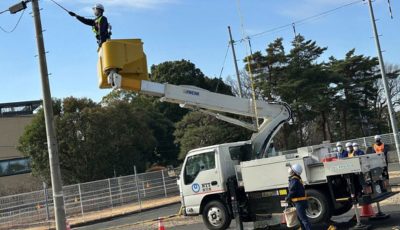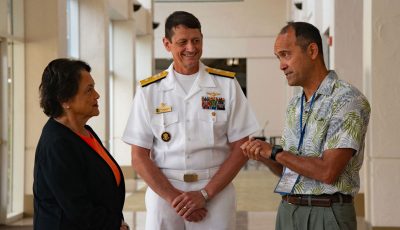Space, the final frontier
We generally think of conflict, war, and violence between nations as something that takes place on land, at sea, or in the air. The same general perspective also extends with how we think about business and commercial activities.
These days, we should think about or reconsider the importance of how war and peace is managed and fought in the realms of information, cyberspace, and space, because these are the places where warfare is taking place now. Space is of particular importance because of its unique combination of characteristics and risks that affect us all.
Present day vulnerabilities and critical infrastructure
There are many reasons why what is in the sky is of utmost importance. One quarter of the world’s nations engage to some degree in space-based endeavors that includes the manufacturing, support, management and launching of satellites and associated resources.
There are limited amounts of area above the earth that satellites can occupy that produce benefits to citizens worldwide. There is also much debris floating above the earth that could potentially damage or destroy satellites in space. International law does not adequately address the various concerns posed by nation state governments, who are all trying to protect their inventories of active satellites.
American military satellites are vulnerable to damage and destruction through the use of anti-satellite weaponry by China or Russia. Space-based resources enable 21st century society to more fully operate and flourish. These and other factors are what constitute international critical infrastructure.
Guam and the Northern Marianas Islands
Military and commercial vessels that come to the Port of Guam, for example, rely on space-based systems to navigate to and from the Marianas.
Blue continent civilizations such as ours depend on space-based navigation systems to safely take us to and from Saipan, Guam, Tokyo, Manila, Honolulu or elsewhere on commercial aircraft. The ability to know real-time weather patterns is predicated on the use of satellites that provide coverage above our island chain and Micronesia.
Phone conversations are enabled through space-based assets and trillions of dollars of business is conducted through space-based communications equipment and supporting infrastructure every year.
Without satellites in space, things would be different.
America’s renewed military pivot into space
Because of all the commercial and military activity now associated with space, it makes sense to find ways for wealthy nations to find ways to protect their interests and prestige more effectively. For the United States in particular, this prompted the creation of the Space Force, which was established two years ago by former President Donald Trump.
The goal of the Space Force is to reconstitute and streamline how American military resources are arranged and managed when it comes to all things space-related. If the United States does nothing, it risks losing any advantage it has in space to nations such as China or Russia. Thus, billions of dollars have been and are being spent to establish and grow this new military organization, which buys assets to launch satellites, spacecraft, military decision-making command and control infrastructure components, related ground equipment and support personnel.
Military spending in the United States is complemented by substantial corporate money that is being deployed toward the production of space-based dual use technology. Companies are also competing to win federal government contracts associated with space and satellite activities as opportunities continue to flourish.
What Guam and the Northern Marianas should expect in terms of space frontiers
Whether we support, oppose, or don’t care about the military buildup in the Marianas Islands, space-based civilian and military assets of the United States enable all of us to carry out our daily work tasks and live our lives in the digital communications ecosystem.
Many of the underlying infrastructure frameworks needed for the military to perform operational missions can only take place with high-technology componentry found in all domains, including space. Nations close to the Marianas, which include Japan, China, and Russia, are leading the way in space-related spending, as is the United States.
Thus our region of the world will determine how developments in space unfold in the future. Our region is the bellwether in terms of how powerful nations engage each other in space. This is of utmost importance to all of us.
What our ancient Marianas Islands chain does for military and commercial clients interested in space
Our island chain further enables military and contractor personnel to engage in spy activities in ways, for example, that help provide early warning coverage of attacks from medium to long-range conventional and nuclear missile strikes. The Marianas is a necessary piece of the broader American missile defense network currently being constructed throughout Guam and Micronesia.
Guam and the Northern Marianas Islands are also near the equator. This fact allows for satellite launches to take place in almost any direction because of in-place protocols to launch rockets from aircraft flying over the ocean. In addition, Antonio Borja Won Pat International Airport will also benefit as it moves toward also being a spaceport launch site for Virgin Orbit. Virgin Orbit’s presence in northern Guam gives the military and commercial interests a place to initiate satellite launches from commercial aircraft.
STEM opportunities for the Marianas
These broad developments line up well with efforts made by Mariana’s lawmakers and educators who are interested in training young people in STEM-related disciplines. The hope here is that kids will be able to fill many important and key roles in Guam’s future space launch industry, which is constantly evolving as technology and preparing for war change.
With thousands of satellites in space and the need for societies to operate in space, it makes sense that our Chamorro Pacific Islander civilization pays close attention to the military race in space because it will impact us all.



























